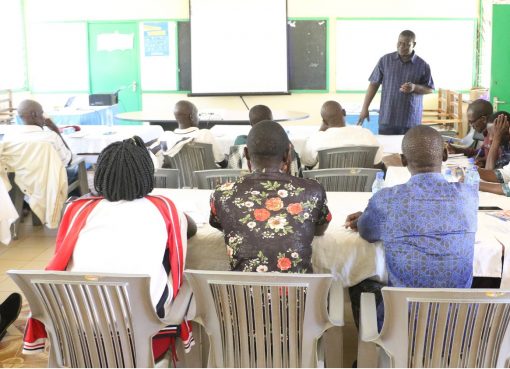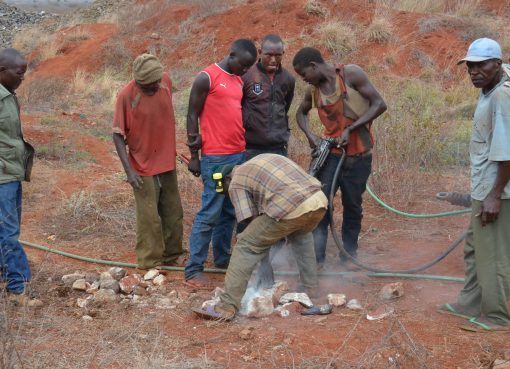Association of Charitable Children Institutions of Kenya (ACCIK) has rolled out a two-year program in seven countries to reintegrate thousands of minors, currently living in children’s homes across the country and take them back to their families.
The counties targeted in this de-institutionalization program are Kisii, Kakamega, Uasin Gichu, Kiambu, Samburu, Makueni and Taita-Taveta County.
Speaking at Mwatate during the roll-out of the program in Taita-Taveta on Friday, the national chair of ACCIK, Stephen Ndung’u said childrens homes were not supposed to be permanent homes for minors who needed care and love from family members.
He added that there was estimated 42,000 children in over 854 institutions across the country who needed to be reunited with their families.
The program dubbed ‘Protection of Children from Family separation, abuse, neglect and exploitation project’ advocates for family integration and provision of alternative family care instead of putting minors in children’s homes.
“Children need love and attention from family members. Childrens homes should never be permanent living places for vulnerable minors who need a family set up,” said Mr. Ndung’u.
According to government Children Regulations, the maximum period allowed for a child to stay at a CCI is only three years. Under special circumstances, a child can be allowed an extra three years which cannot be extended.
Mr. Ndung’u said placing children in CCIs should be the last resort after all other means have been exhausted.
He added that most institutions never had exit plans for children in the CCIs due to lack of capacity by the staff managing the homes. He also said few children homes had Individualized Care Plan (ICP) for each minor in CCIs.
“We want to discourage families from bringing their children to CCIs. The children should be kept close to family members for wholesome growth,” he argued.
In a Baseline Survey done between July and September 2018 on 12 CCIs in seven counties, ACCIK found out that majority of the children in those institutions felt ‘at home’ because life was better at CCIs than in their homes.
The survey, which has a response rate of 85 per cent, further established that there were more girls than boys being housed in CCI.
Mr. Ndung’u added that learning institutions like boarding schools were part of the problem of creating a dysfunctional society as they encouraged separation of families.
“Small children in need of care and love are sent away to schools for months. They grow up without having deep attachments with their parents and relatives,” he said.
The programme will also map out and identify family members of children in CCIs, support reintegration programs and empower families on economic sustainability to allow poor relatives take care of minors. Once successful, the program will be rolled out in other regions.
Taita-Taveta has six CCIs with a total population of 113 children. The programme will be conducted in the four CCIs in Mwatate Sub-county and one in Voi sub-county.
Juma Boga, Children County Coordinator in Taita-Taveta said the department of children was working towards reducing the number of CCIs from the current six to a maximum of two.
He added that it was easier to manage rescue centers than Children Homes and noted the four CCI’s would act like rescue centers for vulnerable children.
“We need to discourage the practice of families looking at CCIs as solution to challenges of bringing up children. Parents and other relatives should embrace their children and live with them,” he said.
He warned that some family members avoided parenting responsibilities by dumping children in CCIs where they would be taken care of.
The meeting was attended by stakeholders in children matters, including officers from probation office, police, Non-Governmental Organization, education and interior.
By Wagema Mwangi





